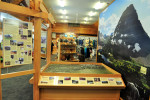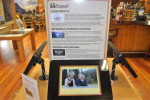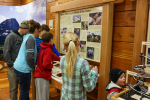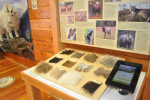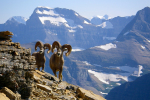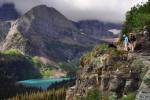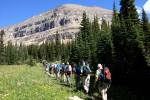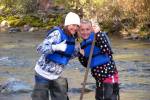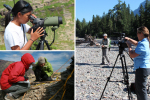Engage both visitors and hosts in learning about the place.
Educating individuals about the natural and cultural heritage of the Crown of the Continent helps tourists gain a richer experience and residents develop pride in their locales. Two first class examples of organizations that promote this type of education are the Glacier Institute and the Crown of the Continent Research Learning Center.
The Glacier Institute

To date, they have provided over 28,000 scholarships to underserved youth and have never turned away a child in need of financial assistance. By joining as a member of the Glacier Institute, or even just participating in one of their field courses, you are supporting the next generation of teachers, river ecologists, naturalists, wildlife biologists and innovators!
Whether you’re planning a personal visit, a family reunion, or a corporate retreat, the Glacier Institute would be delighted to educate your group. They offer an array of private outdoor educational programs that are ready for you, DAILY! Your personalized educational outing will include instruction, a personal educator, and transportation in a Glacier Institute vehicle. It may consist of one or more days and optional lodging is available. The personalized educational outings offered from June through October include:
- Glaciers, Goats, and Going to the Sun
- Avalanche Lake and Trail of the Cedars
- Grinnell Glacier Recession
- Hike to an active fire lookout
- Wildlife Wanderings along the Continental Divide.
Looking for more information?
For information about the Glacier Institute or to sign up for one of their Personalized Education Outings, fill out the form below:
The Crown of the Continent Research Learning Center (CCRLC)
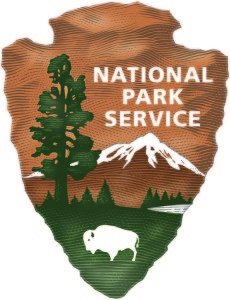
- share scientific research and results occurring in our parks
- facilitate research efforts
- provide opportunities for public education and involvement
The CCRLC represents three national park units in the region as well as Waterton Lakes National Park in Canada. They also work with a variety of partners to increase science, research, and science literacy in the Crown of the Continent.
One of the highlights of the CCRLC is their Citizen Science Program in Glacier National Park. This program trains park visitors, students, and staff to collect scientific information that would otherwise be unavailable to resource managers and researchers. For citizen scientists, the rewards are a sense of stewardship, a greater awareness of the park’s resource issues, and an expanded insight in ecological research methods. For the park, citizen science provides a wealth of baseline data that increases our understanding of priority wildlife and plant species. It also enables the CCRLC to begin addressing the growing list of research and monitoring needs in spite of personnel and funding constraints. Through our efforts, the CCRLC combines science and education to help preserve and protect areas of national significance.
Looking for more information?
For information about the Citizen Science Program or to sign up as a citizen scientist, fill out the form below:




